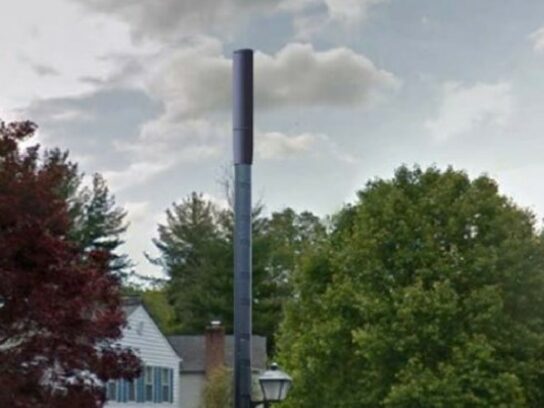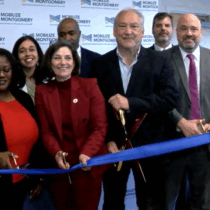
By a vote of seven to two, Montgomery County Councilmembers approved a change to its zoning ordinance that will increase 5G access throughout the county by allowing small cell antennas on existing or new poles.
Councilmember Hans Riemer, the moving force behind bringing 5G to more areas, cited federal studies on the safety of 5G and also said the county needed to keep up with new technology. Placing antennas on rooftops a mile apart is not adequate. “We’ve got to let these antennas come closer to us” to improve wireless service, he said.
Councilmember Craig Rice called it a racial equity issue, noting that during the pandemic, some families of color had to take their children to parking lots to get online to do their school work. He said bringing 5G closer to these communities, “I believe, it is the right thing for us to do.” Councilmember Gabe Albornoz added, “In my estimation, this is progress.”
But Councilmembers Will Jawando and Sidney Katz urged the council to delay the vote until the federal district court in D.C. rules on challenges to 5G.
During earlier council committee meetings, the zoning text amendment was updated to accommodate some residents’ concerns. The amendment now allows these antennas to be located 30 feet from a habitable building and, if possible, on a preexisting utility pole or street lamp. If a new pole is needed, it can not be taller than nearby poles. A conditional use hearing would be required if these conditions could not be met.
County Executive Marc Elrich issued a statement that he was “disappointed that the Council majority failed to use the time since November 2019 public hearing to collect best practices from other jurisdictions, understand the changing legal landscape at the FCC and work with residents to address community concerns.”
Any changes since the public hearing increased community concern, Elrich said. He specifically pointed to reducing the limited use setback from 60 feet to 30 feet. “There is no evidence that these detrimental changes were necessary,” he wrote.
He questioned the council’s urgency in adopting the changes, pointing to pending lawsuits on telecommunications towers and radio frequency standards.
Elrich renewed his request for a community workgroup to review the legislation.
In a newsletter following council’s vote, Riemer wrote, “Montgomery County has to take steps to build a stronger economic future. While we have been debating whether 5G should be legal, other jurisdictions in the region have long since moved forward. How are we supposed to compete for job growth from companies like Apple, Microsoft, Google, or Amazon, if we turn our backs to technology infrastructure? The answer is that we can’t. Companies don’t want to be in a technology backwater.”


Comments are closed.